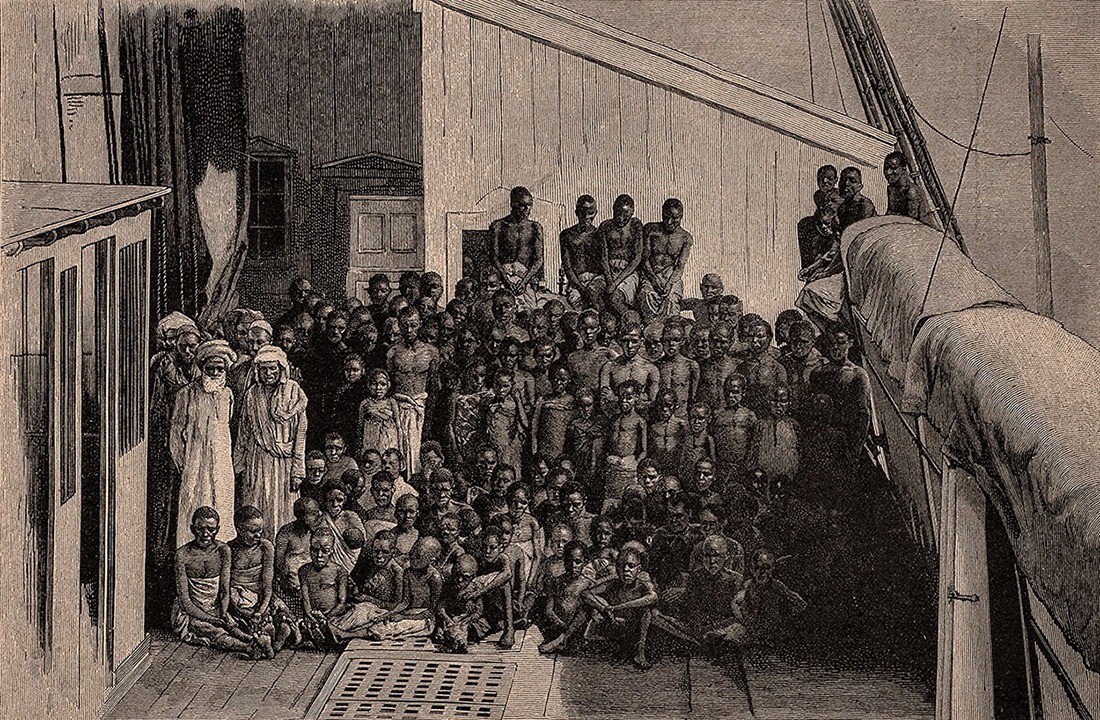An article written by Raphaël Cheriau, historian.
In September 1888, the British Consul for Muscat in the Sultanate of Oman registered the testimony of a young 15-year-old adolescent named Khamis, who had taken refuge a few days previously on board a Royal Navy vessel, in order to escape from traders who had captured him in Zanzibar. Far from being an isolated incident, the story of Khamis is an emblematic example of the many cases of fugitive slaves picked up in the Indian Ocean by the Royal Navy during second half of the 19th century. The account reflects a young adolescent surprisingly aware of the important role played by the British Navy in the repression of the slave trade during that period.

Collection of Villèle historical museum. Michel Polényk donation, inv. ME.2017.1.21
After the abolition of slavery in the British (1833) then in the French (1848) colonies, during the period when the slave trade in the Atlantic was on the decline, Royal Navy operations against the slave trade in the Indian Ocean were enforced. In the 1860s, between seven and twelve vessels patrolled for this purpose along the East African coasts, as well as those of Oman and the Persian Gulf. The means allocated to the British Navy were thus insufficent considering the task at hand. It is, therefore, not surprising that the impact of the Royal Navy repression, though significant, was fairly limited. From 1860 to 1890, Royal Navy cruisers captured only 1,000 dhows, freeing 12,000 slaves. The actions of Her Majesty’s vessels were thus not able to put a stop to the trade, which only occurred following the collapse of the commerce of pearls and dates in the 1920s.
The contribution of Great Britain did, however, play a decisive role as regards the status of the slave trade under international law. Articles 99 and 110 of the United Nations Convention on the Law of the Sea (1982) were largely inspired by the actions carried out by the Royal Navy. These articles prohibit the transport of slaves while establishing the right to universal capture of vessels suspected of involvement in the trade.






